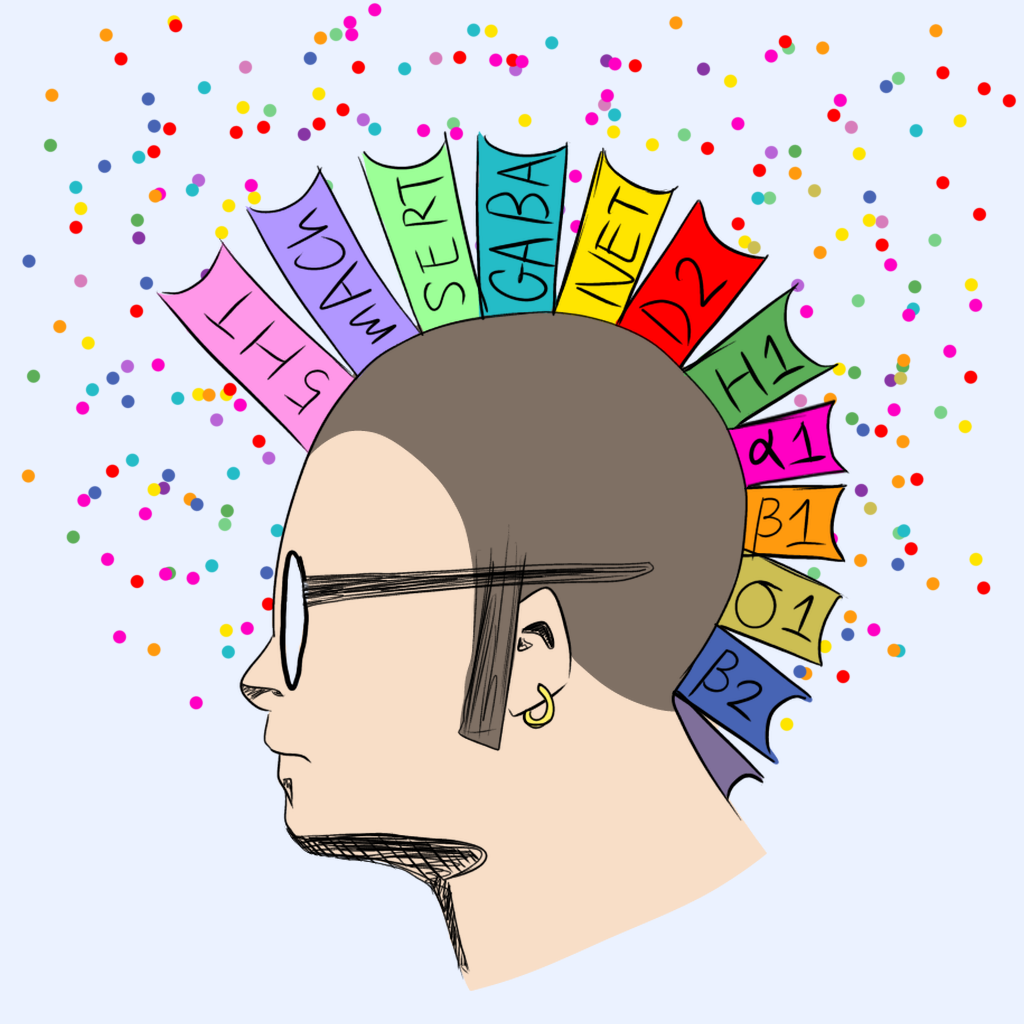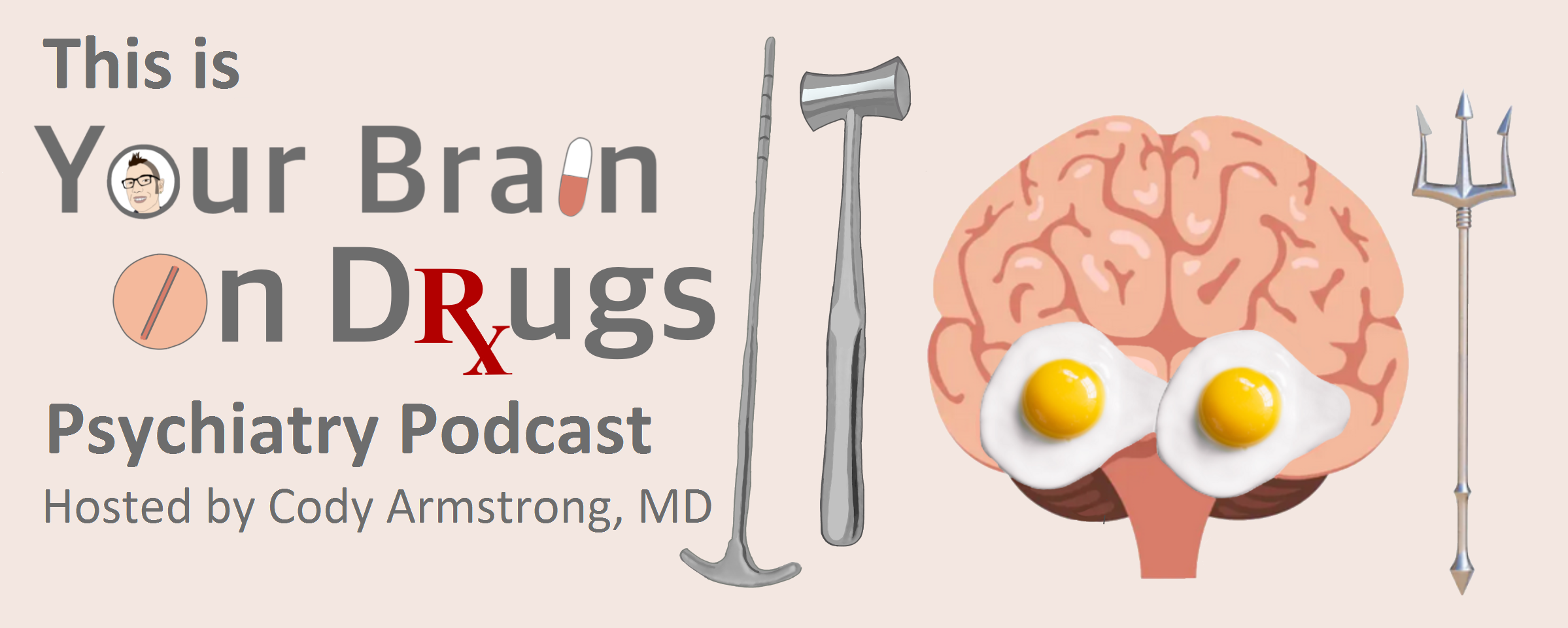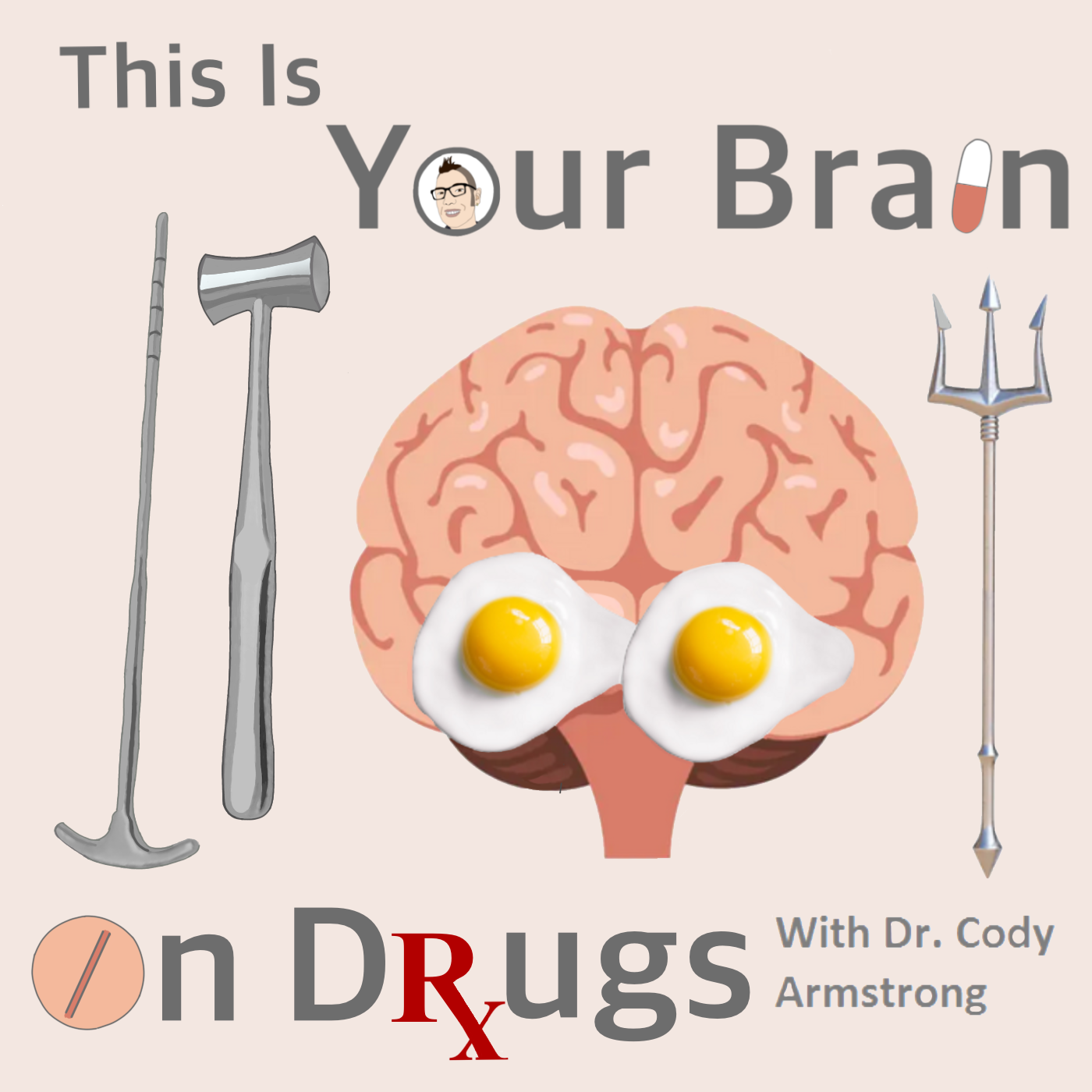


About
Welcome to The Punk Rock Psychiatrist homepage, home of "This Is Your Brain On Drugs Psychiatry Podcast." On this podcast, I will be bringing you episodes that cover all psychiatric (and in the future, beyond psychiatric) medications in easy, concise, digestible pearls that will tell you everything you need to know about these medications whether you are a student, nurse, prescriber, patient, or interested listener. Episodes will also be available on my YouTube channel with accompanying slides so that it's easy to follow along. The slides will be available to you at no cost (in fact everything is completely free with no ads or sponsorship of any kind) on this website. To learn more about me or the show, click on "About" at the top of the page and listen to my first episode.
Lastest Episodes
It's been a few months since my last update episode, and I have several updates in the world of psychiatry. A couple studies of the ketogenic diet for depression and anxiety, a newly approved device for depression, a blood test for Alzheimers, ibogaine in Colorado, pregnancy risk with benzodiazepines and sleep medications like Ambien, a new study on the non-link between Tylenol and autism, and many more. I hope you enjoy these updates of real time information that has come out since November!
Today I will continue talking about potential adverse effects of stimulant medications. Last time I discussed several adverse effects, but today I will mostly be focusing on cardiac (heart) effects because those have gotten a lot of press, especially with a previous black box warning for this. I will also talk about use in pregnancy in this episode. Next time I will discuss substance abuse issues which will round out all of our potential adverse effects.
So today I wanted to do an episode about deception in health information. How do these deceptions work and how to detect them. We don't all have the knowledge or time to go through the literature with a fine toothed comb, and even those like me that do have more knowledge and more time can still be misled, and we are often misled by well intentioned folks that think they have correctly interpreted the data and are revealing some kind of new controversial truth to us. I mean governments and businesses have an incentive to mislead us and have in the past, so it isn't surprising to think that they are doing it again. However, we can also be misled by those that are making these accusations against governments and businesses. How confusing! Today I will talk about this and I will also make some corrections of things that I have said during this series on nutrition and some of them are big ones!
Today I do a deep, deep dive on Adderall, aka Mixed Amphetamine Salts, and I attempt to answer my own questions, "Why are there 4 different salts in Adderall?" I mean I get that there is a mixture of levo and dextro, but why the sulfate, aspartate monohydrate, etc.? Well, for those of you that are wondering this is well, I think I have the answer. This is not stated anywhere that I could find, it is my best guess hypothesis. It's interesting because as far as I am aware, other than Xywav, there is no other medication that is a mixture of salts of the same active drug, and in the case of Xywav, the purpose is to minimize sodium intake. For Adderall, there is no sodium, so the explanation is completely different and actually pretty fascinating. Have a listen!
So, we've talked about every stimulant medication for ADHD under the sun and we understand them pretty well. Next, I will be discussing the adverse or side effects of these medications. What are the most common ones? Which should we take more seriously? And what can we do about them when they happen? I'll be discussing how to mitigate these adverse effects so that patients can take their stimulant medication that works for them, while not having to suffer from the side effects at the same time. I will go over most of the major ones today, but I will discuss cardiovascular effects and abuse potential on subsequent episodes.
Well, we've gone through all of the information about nutrition. What's healthy. What't not. How to eat better. As well as the scientific evidence for improved nutrition and mental health. Today on the last episode in the series I will be discussing all the stuff that gets in peoples' way when it comes to eating the way that they want to in order to live a healthier life. I have several factors that I will discuss, and I will give strategies for how to address these barriers so that when you face them, you will know what to do about them so that you can implement the healthy nutrition plan that will make you fit and happy.
Today I will finish talking about the methylphenidate formulation medications. This will be part 3 of 3 of the truckload of methylphenidate medications. I'll discuss the now no longer available Adhansia XR, the dexmethylphenidate products, Focalin and Focalin XR, the newest serdexmethylphenidate + methylphenidate product, Azstarys, and the off-label stimulants, modafinil and armodafinil. Once again I'll talk about how these different from each other and when you should choose one over the other. What are the advantages and disadvantages to each? Well, you've come to the right place. Have a listen!
Well, I've finally made it to the end of my nutrition talks and to round that discussion out, I will be going over the scientific data and evidence for improving your mood through improving your diet. There's actually a fair amount of studies out there, and they are growing. We will go over all that evidence today, so if you've been wondering why I've been talking about nutrition on a psychiatric medication podcast, then this episode will answer that question because diet works better than medications, and I'm going to talk about that evidence today.
It's almost January and I'm releasing Part 2 of my November Updates. Today I'll be discussing several topics. Seltorexant, Ketogenic Diet, and Fecal Transplants for Depression. Consta is generic. Uzedy and Lumateperone have new indications. New drugs that may get approved for ADHD and negative symptoms of schizophrenia. Hyperemesis gravidarum associated with depression. A case of menstrual psychosis. And more. Lots of good stuff today. Enjoy!
Today I will continue talking about all the methylphenidate formulation medications. This will be part 2 of 3 of the truckload of methylphenidate medications. I'll discuss the patch Daytrana, the long-acting liquid Quillavant XR, the long-acting chewable Quillachew XR, the extra long-acting Aptensio XR, the oral disintegrating tablet Cotempla ODT-XR, and the much delayed release Jornay PM. You may be wondering how are these different from each other and when should I choose one over the other. What are the advantages and disadvantages to each? Well, you've come to the right place. Have a listen!
Today I will be rounding off my information on macro and micronutrients and diet advice, so it's a bit of a hodgepodge. I'll cover cholesterol and protein, and then I'll talk about healthy foods for your brain. These are foods I've been talking about during this whole nutrition section, but I think this gives a good summary of the foods that we have some research on to suggest it is good for mental health.
I'm finally putting out part 1 of my November updates episode. I recorded it a while back but its hard to put out 2 episodes in a week! Today I'll be discussing several topics. New information for you and me on mechanisms of action of vortioxetine, great new data on pramipexole for depression, a new drug on the horizon for schizophrenia? Dangers of Tramadol by itself and in combination with antidepressants, Doxycycline may decrease risk of developing schizophrenia, potential mental health consequences of use of finasteride, the hair loss and enlarged prostate medication, and finally a case series of guanfacine used for catatonia in lieu of ECT availability. Lots of good stuff today. Enjoy!
Today I will start talking about the methylphenidate products. I'll start with the oldest ones, brand names Ritalin, Methylin, Metadate, and Concerta. This includes capsules, tablets, liquids, and the special osmotic capsules used by Concerta. I will mention short acting and long acting versions of Ritalin. I'll compare all these and let you know when I think it might be best to use each one. This will be the first of three episodes covering methylphenidate, as there are quite of few of these to go over. They are basically all the same drug, but the formulations are very different, and they all of their place for when they are best used.
Today I will be talking about another macronutrient, fats or fatty acids. I did an overview of fats in our omega-3 fatty acid episode, but I didn't really go into detail about the other fats, and there is a lot of controversy surrounding the fats, most particularly saturated fats and seed oils which contain the dreaded omega-6 fatty acids. A lot of people hate saturated fats but are ok with omega-6 and vice versa, so what's the real story? I'm not sure if we fully understand the full truth and I think tensions are too high on either side of this debate. I will do my best to explain what these are and present my evidence for why I don't particularly have a problem with either one of them.
Copyright ©2026 This Is Your Brain On Drugs Psychiatry Podcast, All Rights Reserved.
















